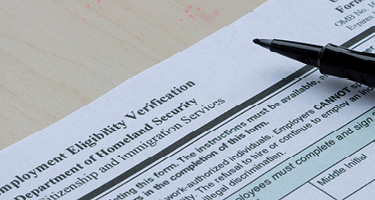We have all watched someone else—whether a celebrity, politician or sports star—have their reputation torn to shreds online. But what happens if it is your business? What can you do if a former employee, customer or influencer takes aim at your business and that reputation you have spent so much time building and protecting?
Unfortunately, there is no easy answer here, but there are several ways in which employers can respond to online harassment and be proactive in trying to prevent such defamation.
Can I protect myself with a contract?
While there are limitations on what you can do by contract (e.g., restricting statements about sexual harassment or assault, restricting some employee speech), a contract signed by an employee, customer or influencer restricting their ability to disparage you online can offer you significant leverage and can help you prevent online harassment.
If it is written right, a contract will allow you to go to court to request injunctive relief to stop breach of the contract. Instead of suing the online offender to try to get money to compensate you for the damage to your reputation, you can go into court to ask for the court to order them to immediately stop saying anything about you online.
While you can try to get an injunction from a court without a contract, a contract makes the court’s job easier because it shifts the focus from a discussion of whether the statements are true and whether the poster has a right to say them to focusing on the fact that the parties had a deal, which is being broken.
You can also use the contract to make the other party liable for your attorney fees if you must sue, which gives the poster some skin in the game. Attorney fees in these cases can be quite significant and can have a tangible deterrent effect. Whether it is a settlement agreement, NDA or contractor agreement, ask your counsel if you are protected.
Should I try to address the post with TikTok or Facebook?
Most social media companies are not going to be very cooperative if you turn to them for help.
For example, while the U.S. Terms of Service for TikTok provides that the user agrees to not upload any defamatory material, TikTok only removes content that violates its community principles and guidelines, which does not extend to commercial or reputational harm.
Facebook similarly will only remove content that goes against its “Community Standards,” none of which address defamatory content. The reason for this is simple. Under Section 230(c) of the Communications Decency Act, social media providers like Facebook or TikTok are not liable for what others post. Because you cannot sue them, they are within their rights to refuse to take down a post that you do not like, even if you contend it is defamatory. We usually do advise clients to complain to the social media company or website and ask that the post be removed, but it rarely happens.
Should I post my own explanation of the situation?
Strategically speaking, consider where the post is made and whether your statement is going to elicit more comments or negative attention. Sometimes, it is best to just let the issue subside and hope that people will move on.
If you are going to say something, always keep in mind that you can be sued for making defamatory statements that harm a person’s reputation, so ALWAYS have your statement reviewed by counsel.
How do I determine the identity of an anonymous poster?
Generally, online posters have a First Amendment right to remain anonymous. As a victim of anonymous defamatory posts, you could file a John Doe lawsuit against the unknown user and try to get the identity via subpoena.
The court will engage in a balancing analysis to weigh the need for discovery against the First Amendment interest at stake. It is entirely possible that the court will decide that your right to sue the slanderer is outweighed by the First Amendment.
What claims could I have if I decide to sue?
If you decide to sue the poster, your primary claim is likely going to be defamation.
You may also be able to bring other state law tort claims such as false light, disclosure of private facts or invasion of privacy. While a comprehensive discussion of all these claims is beyond the scope of this article, we will describe the basics of defamation.
To prove a claim of defamation, you would generally need to establish that a party published a statement with knowledge that the statement is false and defaming to you or published the statement with reckless disregard for the truth of the statement or with negligence in failing to ascertain the truth of the statement.
You must be able to prove that the defamation has resulted in an injury to your character or reputation. Generally, pure opinion (“My manager is a jerk”) is not actionable, and truth is a defense. Thus, some things like allegations of discrimination or poor customer service are inherently non-defamatory.
Are there any risks to suing?
Yes. Thirty-three states have enacted some form of anti-SLAPP (“Strategic Lawsuit Against Public Participation”) legislation. These laws were enacted to prevent defamation lawsuits being used to stifle speech and place the burden on the party suing for defamation to show that the case has merit before discovery commences and they give the defending party the right to recover attorney fees.
In other words, suing an online poster for defamation in a state that has an anti-SLAPP law is a much riskier proposition than suing in a state without one.
Conclusion
While it may sound like the deck is stacked against you, keep in mind that you do have some options if you get counsel involved early. There are three social media cases before the Supreme Court this term alone, so be on the lookout for new developments as the courts continue to struggle with these issues.

Belle Harris is a member of the Adams and Reese Litigation Practice Group and Labor and Employment Team, residing in the Memphis office. In addition to labor and employment, Belle practices primarily in tort, commercial and insurance litigation.

































